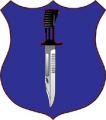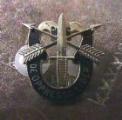I'm not fully convinced of this--it rather depends on the issue and the context.
I concur that the 2006 war left Hizbullah much more deterred than it had ever been. This was not the general view in Israel (or even in much of the Israeli government) at the end of the war, when the view that it had been a "loss" was quite widespread. Since then, as the northern border has stayed quiet, the view that it was a deterrent success after all has certainly grown.
The general regional perception that Israel lost is important. It strengthened Hizbullah significantly, and since 2006 the organization has (in terms of capabilities) become much more of a threat to Israel than ever before. The image of Hizbullah triumphing against Israel (whatever actually happened in unit-on-unit engagements) has spurred recruitment by Hizbullah and Sunni Islamists alike, in the Middle East and further afield. Hizbullah is also actively searching for ways of getting at Israel that don't involve military conflict on the border.
It's more due to bad analysis of what happened on the ground, as Wilf has noted in previous discussions. I do think that Hizbullah performed well above average for an irregular armed force, and not just because it was lavishly equipped with ATGMs. I also think Hizbullah has a reasonable understanding of what went right and wrong--to date, I've seen no evidence that they've either become overconfident, or that they've lost their flexibility and inventiveness.More likely OPSEC. Why correct the world's (and Hizballah's) misperceptions and thereby reveal your TTPs/playbook? Better to have Hizballah "course correct" to a false heading than allow them to improve, plan and resource for another punch-up having thoroughly analysed and digested all of Israel's weaknesses. Maskirovka on a strategic scale.
Theer are several threads on this on SWJ (perhaps one of the mods wants to make up a Hizbullah catch-all thread sometime?)
http://council.smallwarsjournal.com/...ead.php?t=1034
http://council.smallwarsjournal.com/...ead.php?t=4188
http://council.smallwarsjournal.com/...ead.php?t=1109
http://council.smallwarsjournal.com/...ead.php?t=1012







 ) WHOA!!! Scratch that I see,
) WHOA!!! Scratch that I see, 


Bookmarks